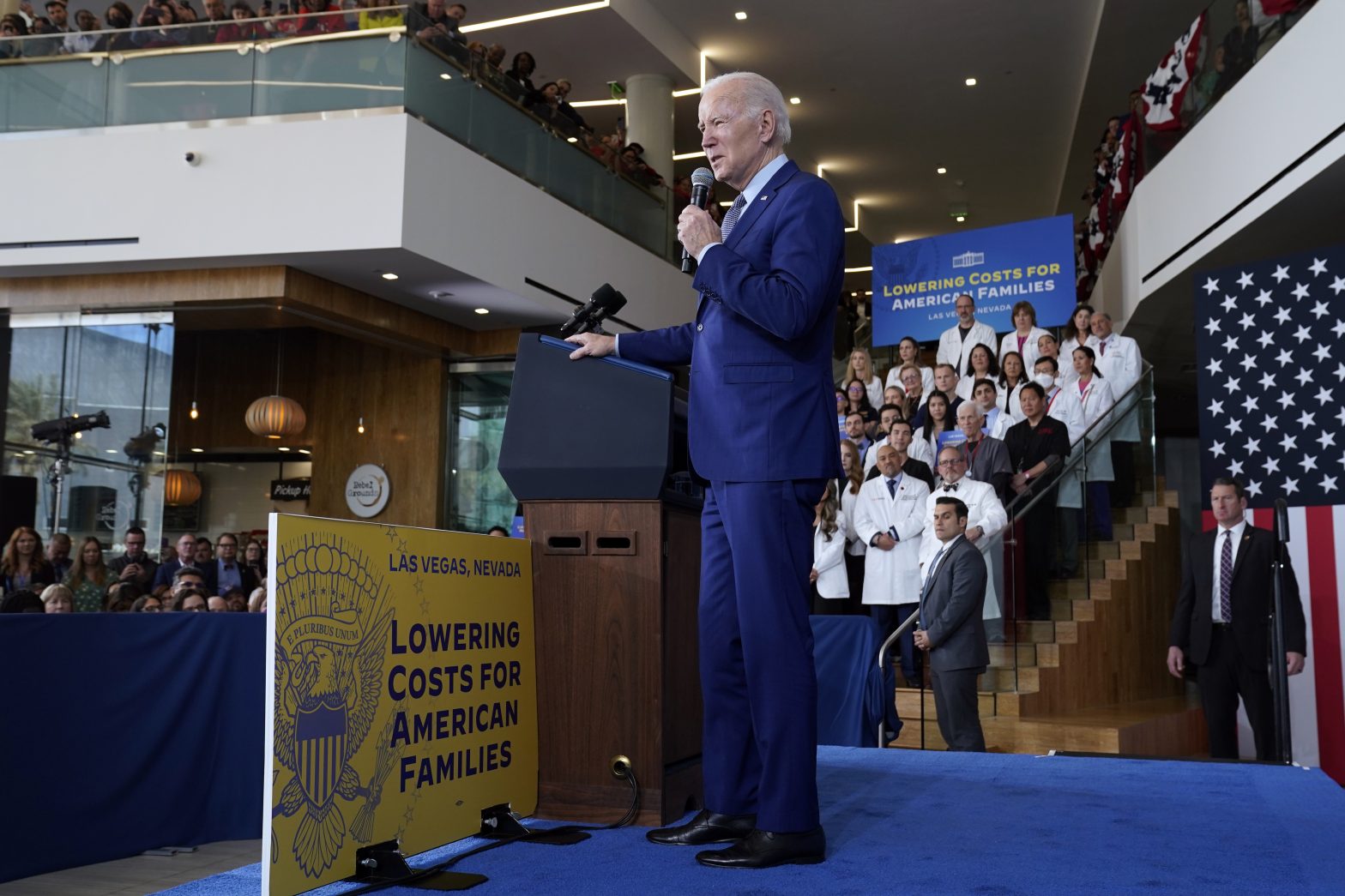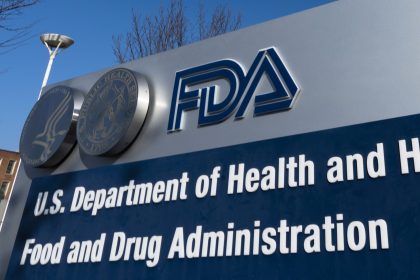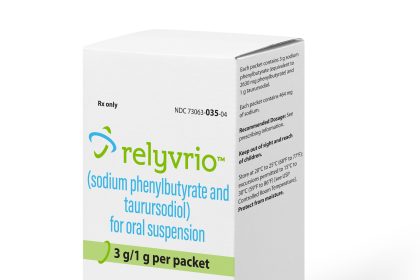Biden Targets Diabetes Drug Jardiance and Nine Others for Medicare Price Talks

WASHINGTON (AP) — The Biden administration is targeting the blood thinner Eliquis, diabetes treatment Jardiance and eight other medications for Medicare’s first-ever drug price negotiations as it seeks to lower medical costs for Americans.
The administration on Tuesday released a list of the 10 drugs for which prices will be negotiated directly with the manufacturer. The move is expected to cut costs for many patients, but it faces litigation from the drugmakers and heavy criticism from Republican lawmakers, and it could be years before consumers notice any savings.
The effort is a centerpiece of President Joe Biden’s reelection pitch as the Democrat seeks to show Americans he’s deserving of a second term because of the work he’s doing to lower costs for them while the country is struggling with inflation. But like the drug negotiations, many of Biden’s biggest policy moves take time to roll out, and his challenge is to persuade the public to be patient.
“For many Americans, the cost of one drug is the difference between life and death, dignity and dependence, hope and fear,” Biden said in a statement. “That is why we will continue the fight to lower healthcare costs — and we will not stop until we finish the job.”
Biden plans to deliver a speech on health care costs from the White House later Tuesday. He’ll be joined by Vice President Kamala Harris.
The drugs on the list announced Tuesday accounted for more than $50 billion in Medicare prescription drug costs between June 1, 2022, and May 31, according to the Centers for Medicare and Medicaid Services, or CMS. The diabetes treatments Jardiance from Eli Lilly and Co. and Merck’s Januvia made the list, along with Amgen’s autoimmune disease treatment Enbrel. Other drugs include Entresto from Novartis, which is used to treat heart failure.
Medicare spent about $10 billion in 2020 on Eliquis, according to AARP research. The drug from Pfizer and Bristol-Myers Squibb treats blood clots in the legs and lungs and reduces the risk of stroke in people with an irregular heartbeat called atrial fibrillation.
Senior administration officials said Tuesday that the 10 drugs selected for negotiation are among the most costly to the Medicare program. They said 8.2 million people with Medicare Part D prescription drug coverage take them.
Other drugs on the list include AstraZeneca’s diabetes and heart failure treatment Farxiga and three drugs from Johnson & Johnson: the blood thinner Xarelto, the blood cancer treatment Imbruvica and it’s biggest seller, Stelara, an IV treatment for psoriasis and other inflammatory disorders.
The list also includes several versions of Novo Nordisk’s Fiasp, a fast-acting insulin taken around meals.
The Inflation Reduction Act already caps Medicare patient out-of-pocket costs for insulin at $35 a month. An administration official said Tuesday that upper limit will hold but there could be further changes in those costs.
The announcement is a significant step under the Inflation Reduction Act, which was signed by Biden last year. The law requires the federal government for the first time to start negotiating directly with companies about the prices they charge for some of Medicare’s most expensive drugs.
More than 52 million people who either are 65 or older or have certain severe disabilities or illnesses get prescription drug coverage through Medicare’s Part D program, according to CMS.
About 9% of Medicare beneficiaries age 65 and older said in 2021 that they did not fill a prescription or skipped a drug dose due to cost, according to research by the Commonwealth Fund, which studies health care issues.
The agency aims to negotiate the lowest maximum fair price for drugs on the list released Tuesday. That could help some patients who have coverage but still face big bills like high deductible payments when they get a prescription.
Currently, pharmacy benefit managers that run Medicare prescription plans negotiate rebates off a drug’s price. Those rebates sometimes help reduce premiums customers pay for coverage. But they may not change what a patient spends at the pharmacy counter.
The new drug price negotiations aim “to basically make drugs more affordable while also still allowing for profits to be made,” said Gretchen Jacobson, who researches Medicare issues at Commonwealth.
Drug companies that refuse to be a part of the new negotiation process will be heavily taxed.
The pharmaceutical industry has been gearing up for months to fight these rules. Already, the plan faces several lawsuits, including complaints filed by drugmakers Merck and Bristol-Myers Squibb and a key lobbying group, the Pharmaceutical Research and Manufacturers of America, or PhRMA.
PhRMA said in a federal court complaint filed earlier this year that the act forces drugmakers to agree to a “government-dictated price” under the threat of a heavy tax and gives too much price-setting authority to the U.S. Department of Health and Human Services.
PhRMA representatives also have said pharmacy benefit managers can still restrict access to drugs with negotiated prices by moving the drugs to a tier of their formulary — a list of covered drugs — that would require higher out-of-pocket payments. Pharmacy benefit managers also could require patients to try other drugs first or seek approval before a prescription can be covered.
Republican lawmakers also have blasted the Biden administration for its plan, saying companies might pull back on introducing new drugs that could be subjected to future haggling. They’ve also questioned whether the government knows enough to suggest prices for drugs.
CMS will start its negotiations on drugs for which it spends the most money. The drugs also must be ones that don’t have generic competitors and are approved by the Food and Drug Administration.
CMS plans to meet this fall with drugmakers that have a drug on its list, and government officials say they also plan to hold patient-focused listening sessions. By February 2024, the government will make its first offer on a maximum fair price and then give drugmakers time to respond.
Any negotiated prices won’t take hold until 2026. More drugs could be added to the program in the coming years.
___
Murphy reported from Indianapolis.
























